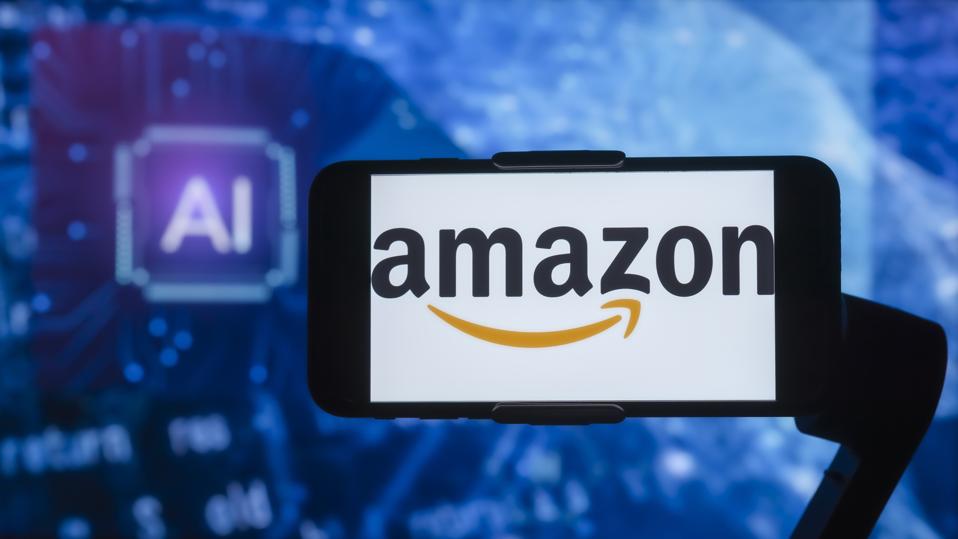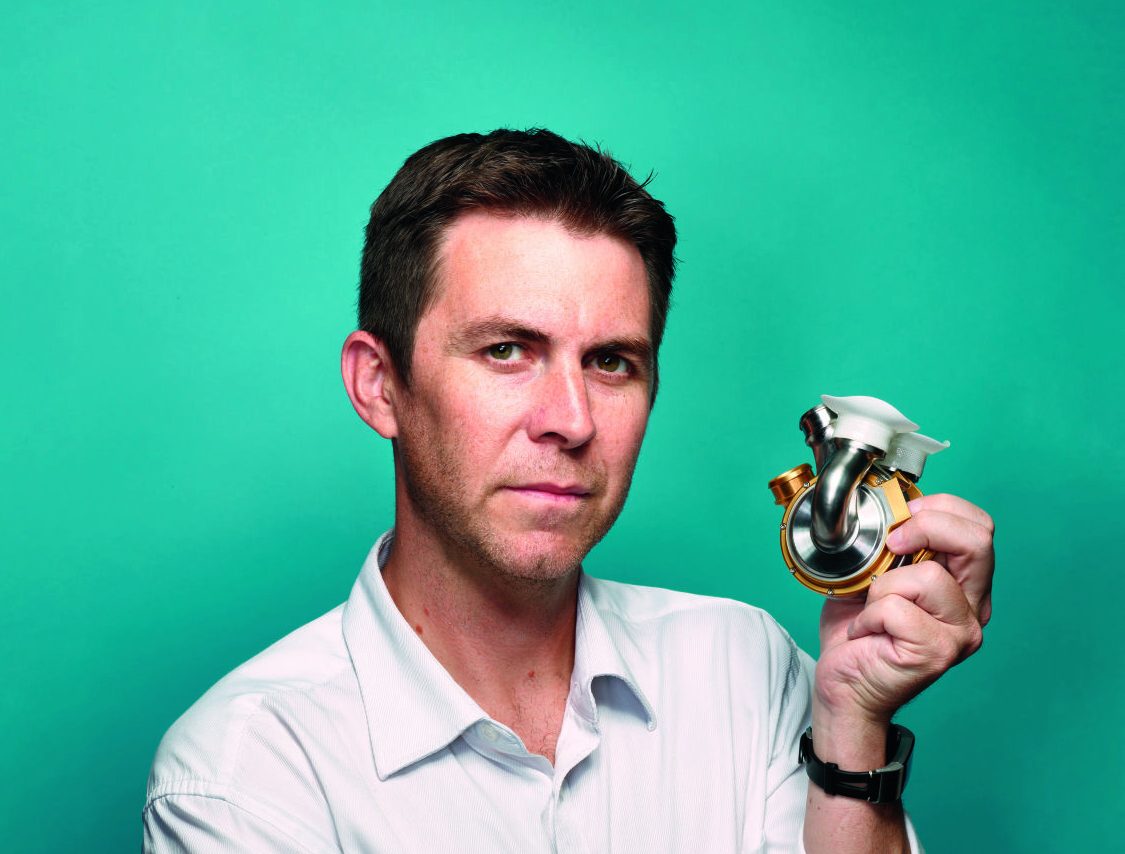Amazon Web Services on Wednesday launched a new generative tool that will allow software developers and healthcare providers to use speech recognition, machine learning and AI to summarise doctors’ visits and manage files, according to the company—the latest move by a tech giant to merge healthcare with artificial intelligence.

In this photo illustration, the logo of Amazon is seen displayed on a mobile phone screen with AI (artificial intelligence) written in the background. Photo Illustration by Idrees Abbas
Key Takeaways
- The company’s newly announced tool, HealthScribe, is meant to phase out the time-consuming documentation process taken on by doctors, replacing it with a programming interface that can transcribe, extract medical terms and medications and create summaries from doctor-patient discussions, forever stored in an electronic health record, according to Amazon.
- The tool would take doctor-patient conversation transcripts and dilute them down into quick-study materials that include why a patient visited the doctor, the history of their illness and other key takeaways, referencing the original, full transcript as a footnote for every sentence, Amazon said.
- Amazon also promises the patient-specific inputs and outputs will not be used to train HealthScribe, and providers will have to train their own language models specific to their office, specialty and other details, like common prescription names and dosages.
- Amazon is the latest giant to enter the high-tech healthcare space: Microsoft last year acquired health AI company Nuance and Google has been developing Med-PaLM, an AI model that quickly provides doctors with medical knowledge they may otherwise have had to spend time looking up.
- Nuance Communications and Microsoft in March announced they had developed the first fully AI-automated clinical documentation application, extremely similar to HealthScribe in that it transcribes and summarizes conversations that were before manually managed.
- Google’s Med-PaLM incorporates AI in a different way, allowing clinicians to ask complex questions and receive accurate answers or probable diagnoses based on a patient’s complaints, symptoms and medical history.
Surprising Fact
Med-PaLM was the first AI to pass the U.S. Medical License Exam, Google says, with a score of 86.5% accuracy.
What To Watch For
HealthScribe has reportedly already caught the eye of companies like 3M Health Information Systems, Babylon Health and ScribeEMR, Bloomberg said, which Amazon will use to distribute the tech rather than selling directly to doctors and hospitals.
Contra
Concerns over quality of care and accuracy of information when it comes to merging healthcare with artificial intelligence are plenty, and many are urging some level of federal oversight. John Halamka, president of Mayo Clinic Platform, told the Washington Post that there should be a process to validate algorithms independently, similar to how the Food and Drug Administration vets new medicines.
A Pew Research Center study in February found that 60% of Americans would feel “uncomfortable” if their clinician relied on AI to diagnose or recommend treatments, and 33% think it would lead to worse health outcomes for patients. Only 38% think it would improve health outcomes. Forty percent of the 11,004 Americans surveyed said it would reduce, rather than increase, mistakes made by providers.
Big Number
$200 billion to $360 billion. That’s how much Harvard University researchers estimate would be saved by the use of AI in the healthcare industry, about 35% of which would come from reducing labor-intensive administrative tasks like billing, appointment scheduling and facility management.
Key Background
Amazon has expanded its health footprint in the last year, most notably through its partnership with One Medical, a membership-based primary care practice that gives patients access to online healthcare 24/7 and provides appointments at more than 125 offices in the country, eliminating the traditional model of finding and sticking with a single doctor or practice. One Health was not Amazon’s first foray into medicine: The company bought online pharmacy PillPack for $1 billion and rebranded it as Amazon Pharmacy in 2018. Amazon Care, a business launched in 2019 that offered similar services to One Medical, shut down at the end of 2022 and Haven, the venture Amazon started with Berkshire Hathaway and JPMorgan Chase, closed in 2021. Amazon lost a bidding war with CVS to acquire Signify Health, a home health technology and services provider, last year.
This article was first published on forbes.com and all figures are in USD.


